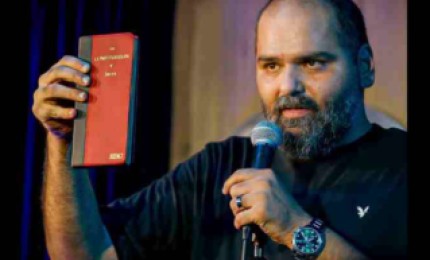Versatility is a key trait for actors seeking a broad range of opportunities in the entertainment industry. Just as a fruit vendor might increase sales by offering a variety of fruits beyond just bananas, actors can enhance their marketability by diversifying their skills, including the ability to neutralise their accents.While certain actors like Antonio Banderas, Penelope Cruz, Sofia Vergara, Holly Hunter, and Charo have successfully carved out niches in Hollywood with their distinctive accents, they are exceptions rather than the rule. For most, a strong regional or foreign accent may restrict the variety of roles available. For instance, Anna Torv and John Noble, stars of the J.J. Abrams series "Fringe," are Australian but adopted neutral American accents for their roles, significantly broadening their appeal and job prospects in the American market.
For actors looking to neutralise their accents, numerous resources are available. Speech coaches specialise in helping actors minimise regionalisms and accents, and there are many online platforms offering accent reduction training. These tools can be invaluable for actors aiming to adapt to a wider range of characters and settings.
However, it’s important to recognize the value of one's heritage and unique voice. If you choose to maintain your natural accent, clarity and diction become crucial. It’s essential that regardless of accent, your speech is clear and understandable to audiences and casting directors.
Ultimately, mastering neutral speech can open more doors professionally, but it doesn't require abandoning your accent in all aspects of life. Actors can switch between accents as needed, using their natural speech in personal settings and adapting for professional roles that demand a different tone. This balance allows actors to embrace their cultural identity while maximising their professional opportunities.
Anna Torv, an Australian actress, is best known for her role as Olivia Dunham on the critically acclaimed J.J. Abrams science fiction series "Fringe". Originating from Australia, Torv’s natural accent is Australian, but her role in "Fringe" required a neutral American accent to fit the character and the show’s setting.
Breaking into the American television market posed a significant challenge due to the strong preference for American accents in mainstream U.S. shows, particularly those with a nationwide and international viewership. Torv needed to convincingly adopt an American accent to broaden her appeal to U.S. casting directors and audiences, and secure the lead role in "Fringe".
To address this challenge, Anna Torv worked extensively with dialect coaches. The training focused on phonetics and intonation to help her achieve a convincing General American accent. This preparation was crucial for her auditions and helped her navigate the initial screenings and callbacks, where accent authenticity often plays a decisive role in casting decisions.
Anna Torv’s ability to adopt a neutral American accent was a key factor in her landing the role of Olivia Dunham. Her performance was widely praised, and her mastery of the American accent is often noted as indistinguishable from native speakers. The success of "Fringe" catapulted Torv into international fame and opened up further opportunities in both American and international projects. The series ran successfully for five seasons, from 2008 to 2013, and remains a popular series on streaming platforms.
Anna Torv’s experience underscores the importance of versatility in an actor’s skill set, particularly regarding accent adaptation. Her success with "Fringe" demonstrates how effective accent training can significantly impact an actor's career, allowing them to transcend geographic and cultural boundaries in pursuit of diverse roles. This case study highlights the blend of talent and technical skill, such as accent adaptation, that is often necessary for success in the competitive landscape of international acting.
The journey of Anna Torv underscores a crucial narrative in the realm of acting: mastering the ability to neutralize or adapt one's accent is more than a technical skill—it is a strategic career move that can open doors to a multitude of opportunities across the global entertainment industry. While actors like Antonio Banderas and Penelope Cruz have flourished with their native accents, the majority find that versatility in accent and speech can significantly enhance their employability, allowing them to fit seamlessly into a variety of roles across different regions and genres. This adaptability does not mean forsaking one's cultural identity but rather expanding one's toolkit to navigate and succeed in a competitive field. For any actor aspiring to make a mark in diverse markets, the capacity to modulate their accent according to the demands of the role can be as crucial as any acting skill, ensuring they are not only heard but also understood and appreciated in every performance.

When Kunal Kamra's Humor Got Him Into Trouble: A Deep Dive into the Controversies of India's Most Fearless ComedianKunal Kamra Controversy: Laughter, Lawsuits, and the Limits of Free SpeechStand-up...
Read Blog
The Oscar race is always full of drama, but this year? It’s absolute chaos. From shocking controversies to unexpected winners, the battle for Best Picture at the 2024 Academy Awards has taken...
Read Blog
In the ever-changing landscape of entertainment, few transformations have been as dramatic and swift as the rise of internet comedians. What began as a platform for amateur funny videos has evolved...
Read Blog
Introduction: In the competitive world of entertainment and talent, having the right representation can make all the difference in launching and sustaining a successful career. Whether you're...
Read Blog.jpg)
While the world of modelling often dazzles with glitz and glam, it's also critical we discuss its darker shades, pulling the curtain back on some challenging realities. Today, let's embark on...
Read Blog
AI Fashion Models: Boon...
Read Blog